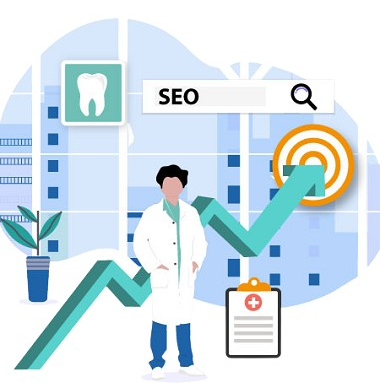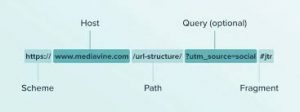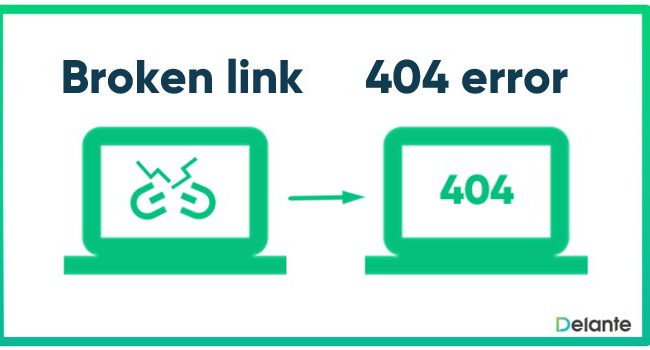
In our previous SEO module What Is SEO and How Does It Work?, we touched on why more dental practices are asking about SEO. We begin this module with a slightly deeper dive into some key numbers and information that shed clearer light on the importance of SEO, the benefits, and the value of dental SEO—meaning the reasons why more dental practices are asking about SEO and how to get started.

The past few years have seen a substantial jump in the number of people worldwide who use the internet. In 2018, roughly half of the world’s population was online. A mere three years later in 2021, roughly two-thirds of the global population (roughly 4.9 billion people) was using the internet, and according to Statista, there were 5.16 billion internet users worldwide as of January 2023. So, when people say that dental practices are competing in “an increasingly online world,” they’re not kidding.

Mirroring the global growth of internet users, more people are now searching for health care information online. In 2003, for example, a co-study published by the National Library of Medicine showed roughly 4.5% of search engine queries were related to health. In 2019, Google Health Vice President David Feinberg shared that 7% of Google searches each day (roughly 1 billion) are for health information, and yes. As recently pointed out by CNN Health, searches include a spectrum of topics, from “What is the keto diet?” to “What does heartburn feel like?” Yet within this pharmacopeia of queries, searches include queries by potential patients looking for a dental practice.
Case in point: In 2019, IronMonk released survey findings in which 43.3% of all respondents said they would choose a dentist with the best online reviews. Roughly a fifth (19.4%) would choose a dentist closest to them, and 18.4% would choose the top-ranked dentist in search results—all of which underscores the obvious. Potential patients for your practice are actively searching for dental information online.
Summary so far: More people each day are online, and right now, more potential patients than you may realize may be searching online for the dental services your practice provides.
Now, if you happen to live in an area where you’re the only practice within a day’s drive for a potential patient, chances are, your practice website may figure prominently in search results for that person. Yet if you’re in a city, town, or region where you’re not the only practice available to a potential patient, ranking, and discovery in search engine results pages becomes far more challenging.
In an increasingly competitive dental market, more dental practices are naturally competing for ranking and discovery by potential patients in search engines, which explains why more practices are asking about the importance of SEO, the benefits, and the value of dental SEO. Since SEO (search engine optimization) is a set of practices designed to increase website ranking and discovery in search engines, results from ProSites’ 2023 State of Dental Marketing report unsurprisingly show 68% of surveyed practices are planning to add more SEO marketing or maintain the same level of SEO marketing.
You now know the overarching reason why more dental practices are exploring the importance of SEO, the benefits, and the value of dental SEO, and why a recent ProSites survey of 110 dental practices showed that top-performing practices ranked dental SEO and digital marketing techniques as even more important compared to the overall sample.
If you’re continuing with this module, we surmise that your practice’s focus on SEO has evolved, similar to many others, and you’re considering the subsequent steps to engage with an SEO company for dentists. This natural progression in strategy will aid in investing in SEO, thus bolstering the financial health of your dental practice.
In this module, we’ll cover:
Let’s get into it.

The opening of this module covered the overarching reason why dental practices invest in SEO, and the smaller whys behind SEO explain why more practices are exploring the importance of SEO, and the benefits, and value of dental SEO. It further highlights the growing interest in dental search engine marketing solutions.

Author and marketing consultant Chris Brogan once said, “Cultivate visibility because attention is currency,” and this applies directly to SEO.
Though Google may deliver pages of search results for queries like “dental practice near me,” potential patients largely aren’t in the habit of scrolling through pages of search results. As Neil Patel recently wrote, “75% of people will never scroll past the first page on a Google search, which is why you need to rank on page 1 of Google,” and the higher the better, based on statistics:
In other words, increasing Google ranking (visibility) translates to the currency of higher CTR potential—and the actual currency that potential represents in terms of new patients and better practice revenue.

The better your SEO strategy matches what potential patients are searching for, the better your practice website stands to show up as a match. “High-quality SEO,” writes Moz, “capitalizes on the search engine’s effort to match a user’s search intent to the web pages listed in the [search engine results page],” adding, “the more high-quality visitors you attract to your site, the more likely you are to see an increase in valuable conversions.”

Search results based on a user’s search intent play a significant role in conversions. For instance, if a parent is specifically searching for a practice specializing in pediatric dentistry, and your SEO strategy, potentially formulated by a pediatric dentist SEO company, doesn’t incorporate the necessary elements to prominently match your practice website to such a search, your ranking on search results pages is likely to be low. That parent will have little incentive to scroll down and click through to your practice website, so conversions will likely be low, meaning low ROI on whatever SEO strategy you’ve invested in.
Inversely, if your SEO strategy includes elements to specifically match your practice to pediatric queries, your practice website will likely display much more prominently on search results pages. Increased visibility (as we’ve already covered) lends itself to higher clicks and thereby higher conversions by people seeking the services your practice provides.

When someone stands at the top of their field, people tend to view that person as credible and trustworthy, and it’s a similar case for websites. When a website appears at the top of search results pages, that website tends to be perceived by people as more credible and trustworthy than lower-ranking websites and thereby tends to earn more clicks.
Getting more clicks is naturally affected by ranking in search results pages, and this is where credibility and trustworthiness come into play as important SEO factors.
As explained in our previous SEO module What Is SEO and How Does It Work?, Google is in the business of delivering the best quality results to queries. To do that, Google’s algorithms look at a variety of website and SEO factors connected to trust and credibility, like external links.
Falling under the category of off-page SEO (one of three main types of SEO), external links are links from one page on your website to a third-party website that’s authoritative and trustworthy. Providing such citations heightens signals of trust and credibility to Google’s algorithms to help improve ranking.
For more about website trust and credibility signals, review What Is SEO and How Does It Work?

You can extend the most attractive invitations in the world to attract people to a party, but if people arrive to discover the party is less than what they expected, they’re likely going to leave and think twice about coming back, and it’s much the same with SEO.
It’s one thing to rank higher in search results to attract more quality traffic to your practice website, but if visitors have an off-putting user experience when they arrive, they’re going to bounce.
To prevent this, SEO includes three important optimization elements to keep people engaged, earn their trust, and convey your credibility to convert visitors into new patients.
The SEO process foundationally involves understanding several things you now know:
At this point, you may be asking, “What are some specific things I can do today to put SEO into action?”
Here are some basics.
Keyword Research

Keywords are words or phrases that users type into search engines to find information. So, it’s important to include popular dental keywords in your SEO strategy so search engines can match your website to user queries. Though some people believe keywords are mainly connected to website content (e.g., service descriptions), keywords are important to a wide range of website elements like image alt text, meta descriptions, page URLs, and more.
If you’re wondering how to do dental keyword research to boost your website’s visibility in search engines, using tools like Semrush and Google Keyword Planner is highly recommended. These can help you find the best dental-related keywords for your needs.
Title Tags

Title tags are HTML elements applied to the headline of a search engine results page that help search engines understand what a web page is about. Title tags also tell users what they can expect to find on a page, which encourages click-through. Example of a dental title tag with keywords: “Murrieta Modern Dentistry: Dental Office near Murrieta CA”
Meta Description
A meta description is a short summary that tells internet users what a web page is about and tends to act like a pitch to convince users to click through to the page. Example of a dental web page meta description with keywords: “Dentist in Murrieta, CA. If you need family dentistry, oral surgery, or emergency dental care, contact us to make a dental appointment.”
URL Structure

Including keywords in a web page’s URL tells search engines what a page is about and acts as a ranking factor. URLs with keywords also provide information to potential patients. Example: xyzfamilydentistry.com/teeth-cleaning-for-kids.
Use one to two relevant keywords in URLs. Don’t stuff your URL with more than a few. Doing so can come across as spam.
Header Tags
Like title tags, header tags are HTML elements (ideally with keywords) used to separate headings and subheadings in the web page content. Under your Services page, for example, you might use the header tag General Dentistry and the subheading Preventive Dentistry/Oral Hygiene.
Links

Internal links, external links, and backlinks are all website quality signals for search engines, which helps with ranking. Internal links are links from one page on your practice website to another page on your website. External links are links from one page on your website to an outside third-party website (ideally one that’s credible and trustworthy). Backlinks are links from a third-party website to a page on your website, and they’re essential to Google ranking.
Keyword Usage
Using keywords in your dental practice SEO strategy is an all-encompassing practice that extends beyond website content, title tags, meta descriptions, URL structure, and header tags. The basics of SEO include using keywords in other ways, such as image alt descriptions and link anchor text.
Sitemaps

A sitemap is a file where you provide information about the pages, videos, and other files on your website. Search engines like Google read this file to crawl your website more efficiently and index all your website’s content, which enables search engines to quickly determine which web pages best answer a user’s query. Your website’s sitemap and organizational layout help focus your keyword strategy.
If you’re tackling SEO for the first time, words and phrases associated with SEO can certainly seem confusing, and that’s understandable. Just like dental professionals use words that can be confusing to patients or anyone, it can be the same for dentists new to SEO waters. If this is the case for you, bookmark the quick reference guide SEO for Dentists (An In-Depth Guide) and reference it as needed as you create and implement your SEO strategy.

Q: How can dentists improve their website’s SEO?
A: There is one ultimate answer to this question. The information provided in this module and our previous SEO module (What Is SEO and How Does It Work?)[XB4] certainly provide a wealth of specific how-to tips. Yet above all of it stands the simplest tip. The best way dentists can improve their website’s SEO is to attend to it. Knowledge is certainly power but SEO application (and SEO adjustments over time to maintain optimal results) is the road to improved online discovery, more appointments, and increased revenue for your dental practice.
Q: How can dentists track the results of their SEO efforts?
A: There are many metrics by which to measure SEO performance, but it’s best to stay focused on a short list of key metrics:
Q: Is local SEO important for dental practices?
A: Yes. Potential dental patients search for dental practices in their area. So, focusing on appearing in local search results in bottom-line important. For more on this, read Local SEO for Dentists: The Ultimate Guide to Superior Practice Rankings.
Q: What should dentists avoid doing when working on SEO?
A: Though there are many things to avoid, one of the biggest things to avoid is rushing. Executing an optimal SEO strategy takes planning, research, and time to implement. Rushing through the process and making guesses at elements like top-ranking keywords risks implementing less-than-optimal SEO.
Q: How long does it for SEO results to be seen?
A: Generally speaking, it typically takes three to six months for SEO to show results. Yet there is no definitive answer because seeing results hinges on many factors explored in this module. The one thing that is known is: The sooner you begin an SEO strategy, the sooner you stand to see results.
Summary

In this module, we’ve covered:
We’ve also touched on SEO results, how getting started sooner is better, and the pitfalls of rushing to implement an SEO strategy.
Central to all the above is time. Though SEO clearly offers substantial benefits for practices, time can often be in short supply for dental practices, which is why more practices are using online marketing providers like ProSites.
Trusted by dental practices everywhere and endorsed by 15 dental organizations, ProSites helps practices thrive with a comprehensive suite of website design, SEO, and internet marketing services to help dental practices attract, engage, and connect with more patients.